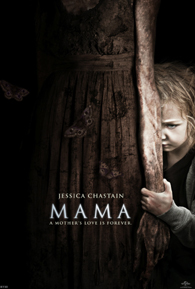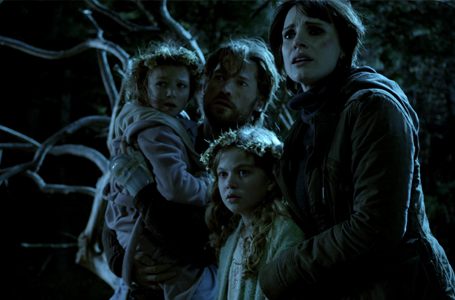
It's easy to understand why Guillermo del Toro stepped up to produce the feature film adaptation of Andres Muschietti's short film, also titled Mama. Horror cinema has evolved in the past hundred or so years of film from investigating the liminal nature of horror to the psychology of horror, and Mama neatly closes the loop.
It used to be that what was frightening in film was the liminal — Dracula and other undead as the improbable, impossible straddler between life and death, the zombie and other cannibalistic figures breaking taboos about food and non-food, the possession story where the boundaries between self and other are unfixed, or the house-in-the-woods serial killer film where the concept of safe home vs unsafe outside is mocked. These days though, horror films are psychological thrillers. The ghouls lurking are often the genre's external projection of our social dramas and anxieties. A family may very well be haunted but it's really the tropes of suburban angst, the absence of a man in the house, or the trauma of a broken or waning marriage that make the modern horror film.
Mama is a rare horror film that brings together both the traditional and modern approaches of horror. In modern psychological thriller mode, the film is about the anxieties of fostering and blended families, its ghost as an externalisation of the fear of foster children clinging on to old nurturers and turning against their new families. In traditional cinema terms, the figure of Mama horrifies because she is a liminal figure that confounds the boundary between kin and outsider, the caregiver and the life-taker.
It's a pity that in this feature treatment, the horror that was so well-articulated in the original short film is somewhat diluted by cheap scare tactics and a backstory that detracts from both the liminal and psychological horror concepts.












 列印版本
列印版本

















讀者回應
搶先發表第一個回應吧!
請先登入再使用此功能。